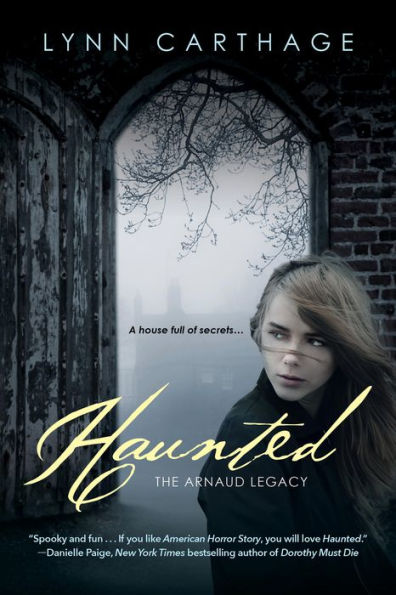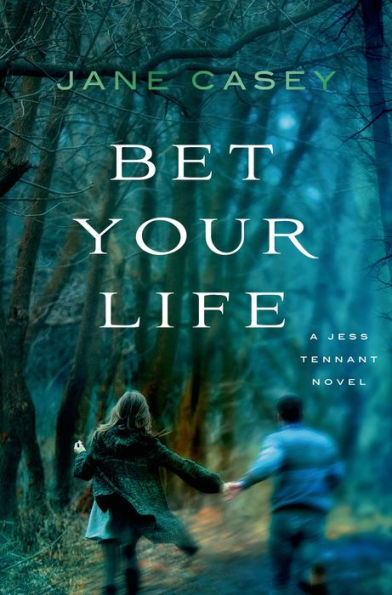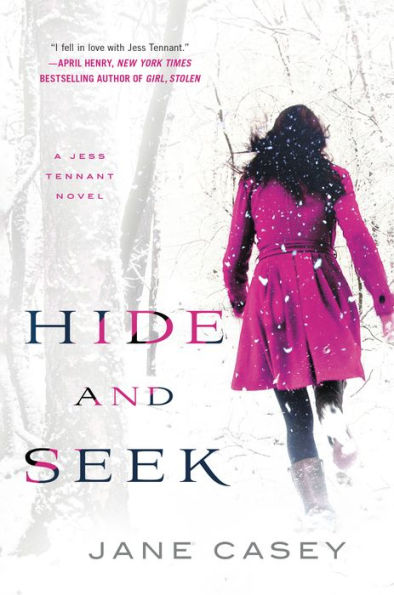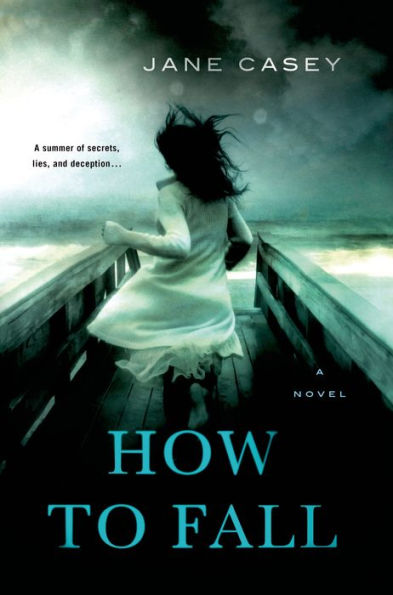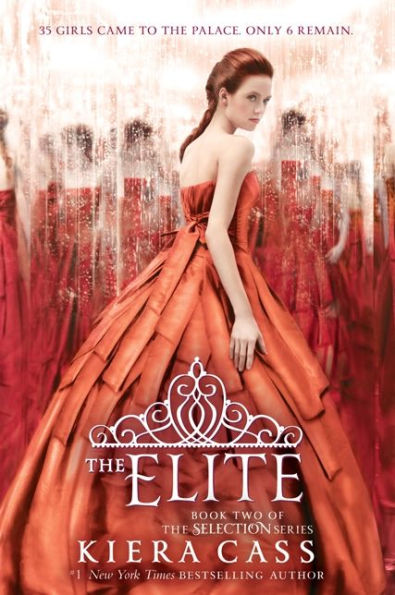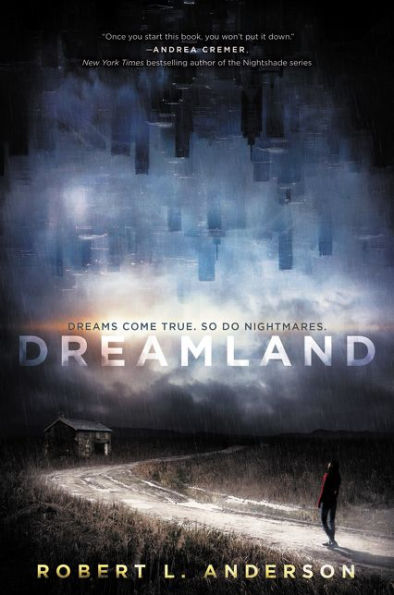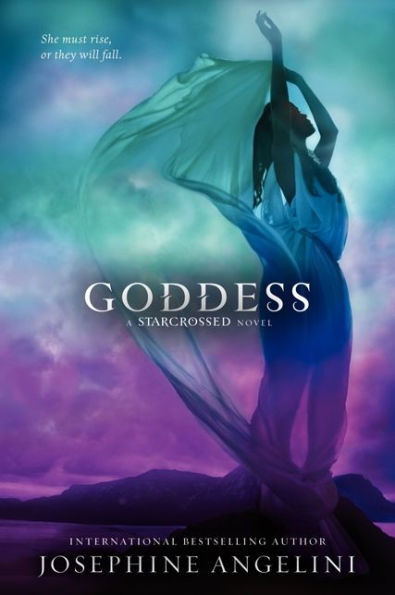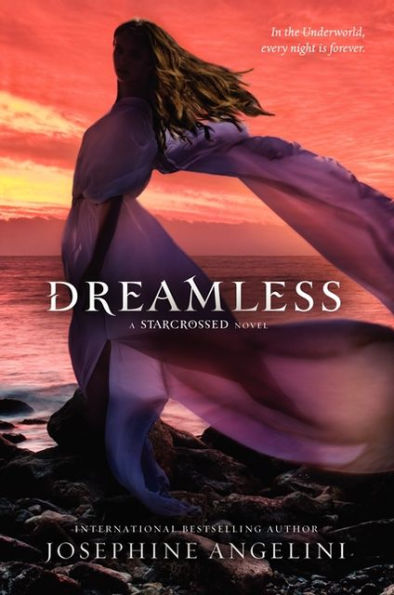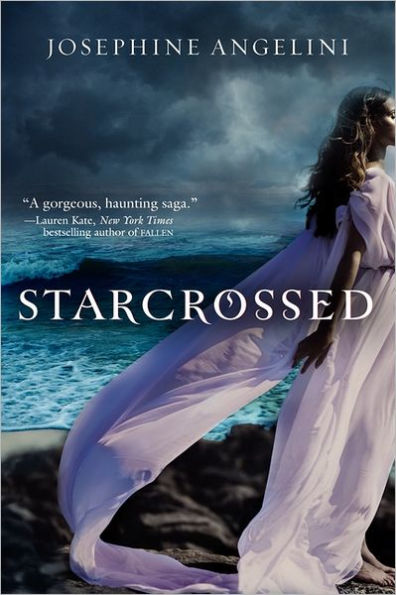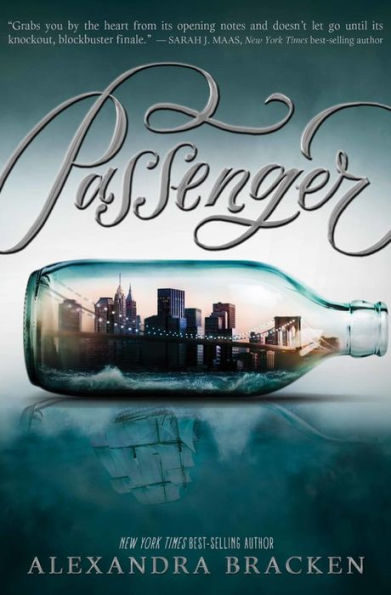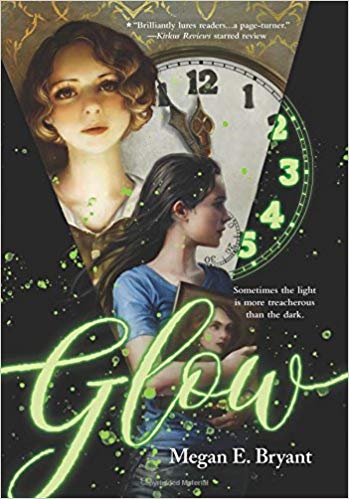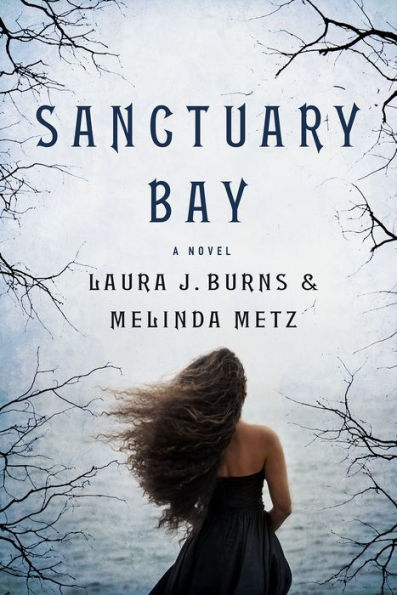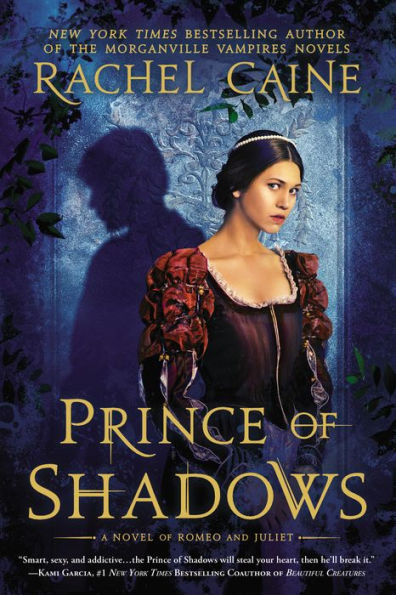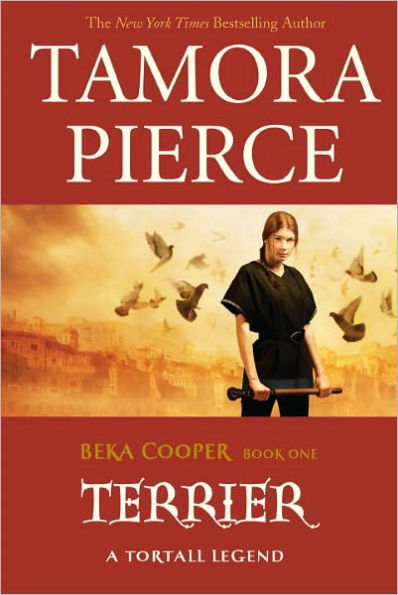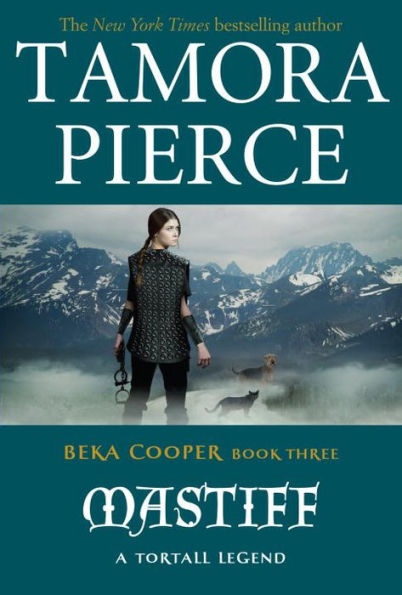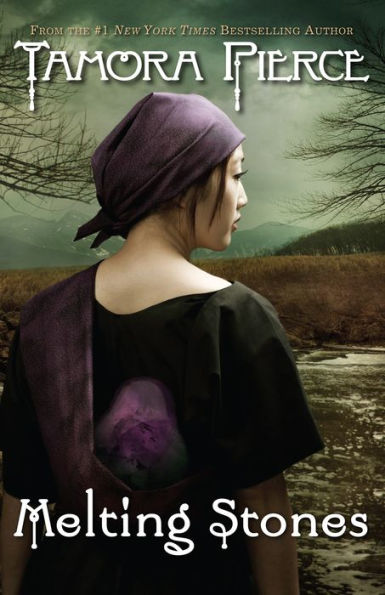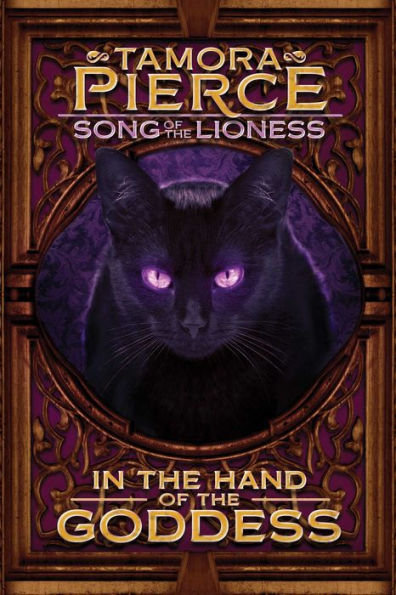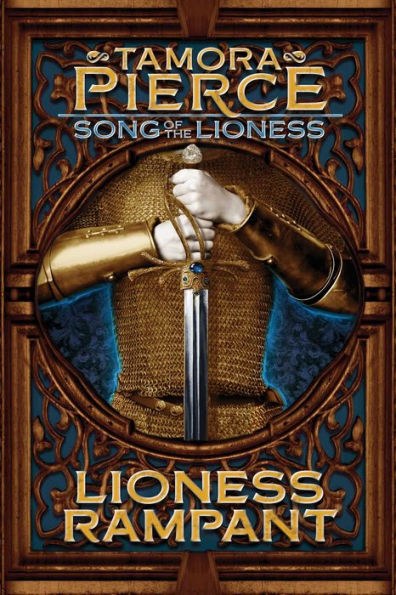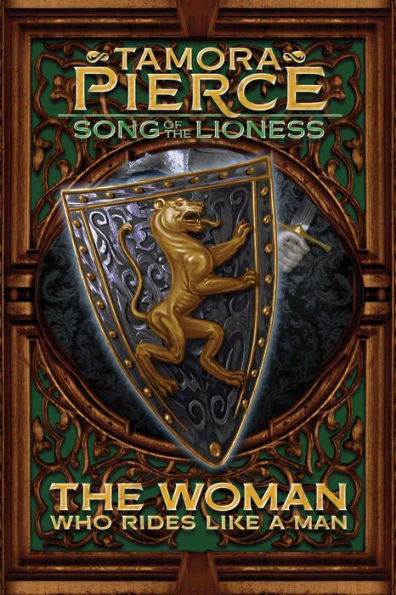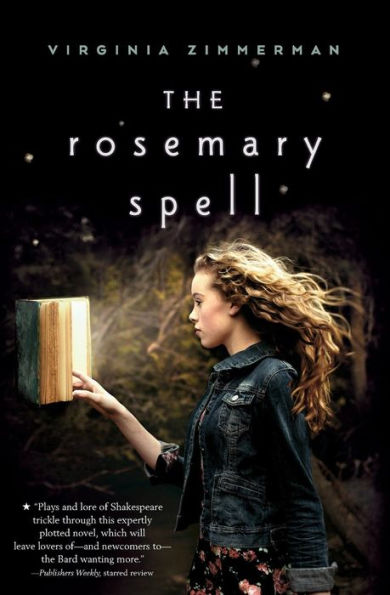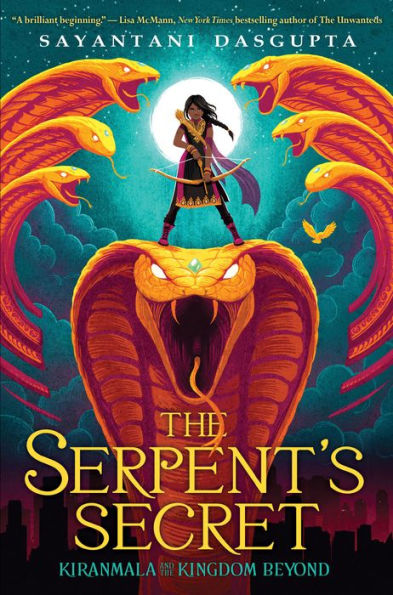Phoebe isn’t sure what is going on. She keeps jumping; one minute her life is perfectly normal, and the next she is in a different location with different people. Phoebe jumps from time and place, which frightens and confuses her (and the reader). Phoebe wonders if she has a mental disorder or if she is truly jumping back in time. It is not until later that Phoebe realizes that she is in fact dead.
To add to the confusion of the story, Phoebe is trying to discover the secrets behind her parents’ move to the family mansion in England. As Phoebe learns about her ancestor, Madame Arnaud, she discovers that her sister is in grave danger. Madame Arnaud has a devious plan. With the help of Miles and Eleanor, Phoebe tries to find a way to defeat Madame Arnaud and save children from dying.
Miles’s character adds a little bit of romance and mystery, which teens will enjoy. Even though Phoebe and Miles like each other romantically, the story focuses on how they defeat Madame Arnaud.
Although Haunted has an interesting and frightening backstory with Madame Arnaud, the beginning of the story is confusing and difficult to follow. Because of Phoebe’s confusion, she comes across as an unreliable narrator, which makes it harder to sympathize with her. Haunted might be a difficult book for struggling readers.
Sexual Content
- Phoebe meets Miles and they kiss. “His tongue was warm, but his lips were cold from the pool, a combination that made me crazy with arousal. My nipples hardened against his bare chest, with my swimsuit a scant barrier between us.”
- Phoebe fantasizes about Miles. “Soon I’d be kissing him for all I was worth, burrowing my fingers into that beautiful, black hair. I’d take my time and lick a slow trail down his neck into the follow near his clavicle.”
Violence
- While in a trance, Madame Arnaud enters Phoebe’s body and writes about a maid trying to kill her. The murder is not described.
- Madame Arnaud wanted to live forever and she thought drinking a child’s blood would allow her to live longer. “If she drank the blood of a baby, she got to drink its future, all the decades it was expected to live.”
- In order to steal the life of children, Madame Arnaud would, “gently lift the child’s arm, or whatever limb had been cut, to her lips and suck away the blood. . . And not just for a few seconds, once the child got used to it. No, she’d take a full suckle like a baby at its mother’s breast. She drank her fill.”
- Phoebe thinks about kidnapping a child for Madame Arnaud. Phoebe thinks if she does this, Madame Arnaud will leave her sister alone.
- Phoebe leads Madame Arnaud to a lake where she has set a trap for her. Phoebe watches Madame Arnaud drown.
Drugs and Alcohol
- Madame Arnaud tells Phoebe that when she lived in France, “we drank champagne like it was water.”
Language
- When Phoebe’s mother sees a puncture wound on Tabby, she says, “My god! How’d you do that? A nail on this goddamn crib?”
- Phoebe’s teacher thinks she is depressed and gives her the number of a suicide hotline. She thinks, “He actually thought I could do it. He was giving me a goddamn suicide hotline number.”
- Phoebe cusses occasionally throughout the book. She says crap, goddammit, and damn.
- A boy tells Phoebe, “I try my best not to be an asshole.”
Supernatural
- Phoebe sees a vision of a woman whose “Decayed skin revealed the muscles underneath. Her right index finger had decomposed so much that just one long bone stuck out at the end.”
- Phoebe mysteriously jumps back in time and she’s not sure if she time-traveled or if it was just a weird memory.
- Phoebe talks about an Ouija board and automatic writing. “Basically, you sit with pen and paper and invoke a spirit . . . you invite them to use your body, and while you’re in a trance, they write their message as fast as they can.” Later in the story, Madame Arnaud enters Phoebe’s body and writes her story.
- The mansion where Phoebe’s family lives is full of ghosts, including the ghost of the babies who Madame Arnaud killed.
- A character tells Phoebe about a woman named Elizabeth Bathory who “Bathed in the blood of virgin peasants to keep her skin fresh and youthful. She also, if the victim was beautiful, drank the blood.”
- In the end, the ghosts are “released” and go on to the afterlife.
Spiritual Content
The story contains a pagan yew tree that has a Rune on it. The tree aids in killing Madame Arnaud. Phoebe believes that “the house is malevolent. But something brought us together, something kept sending you to your car and me to the pool. It wanted us to figure things out and fix things.”
